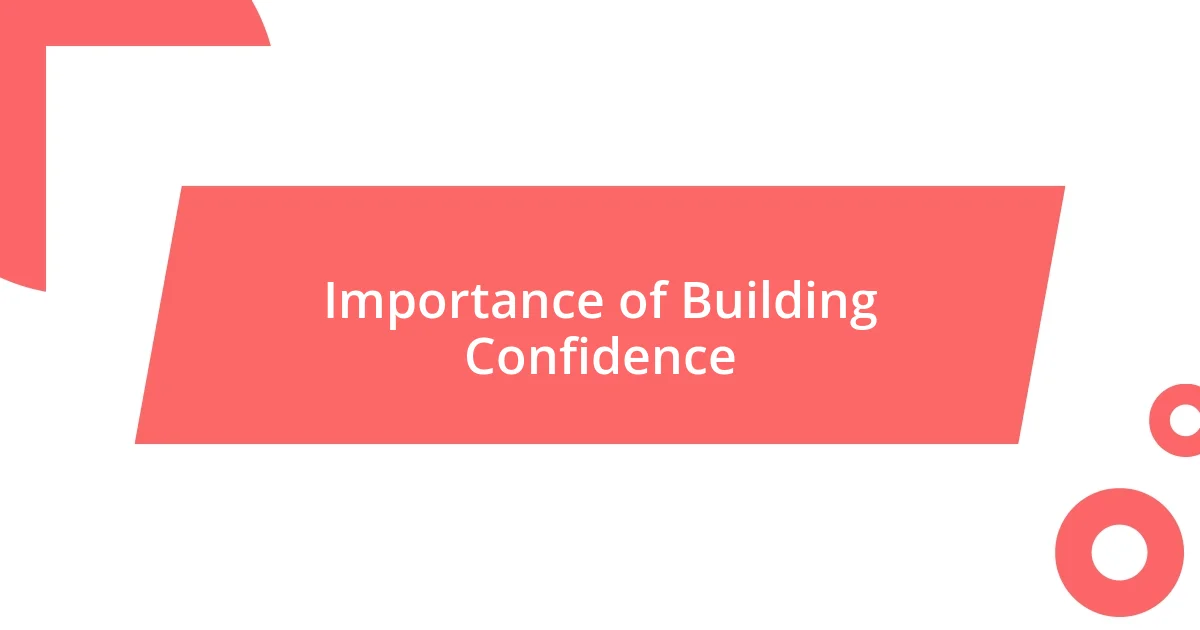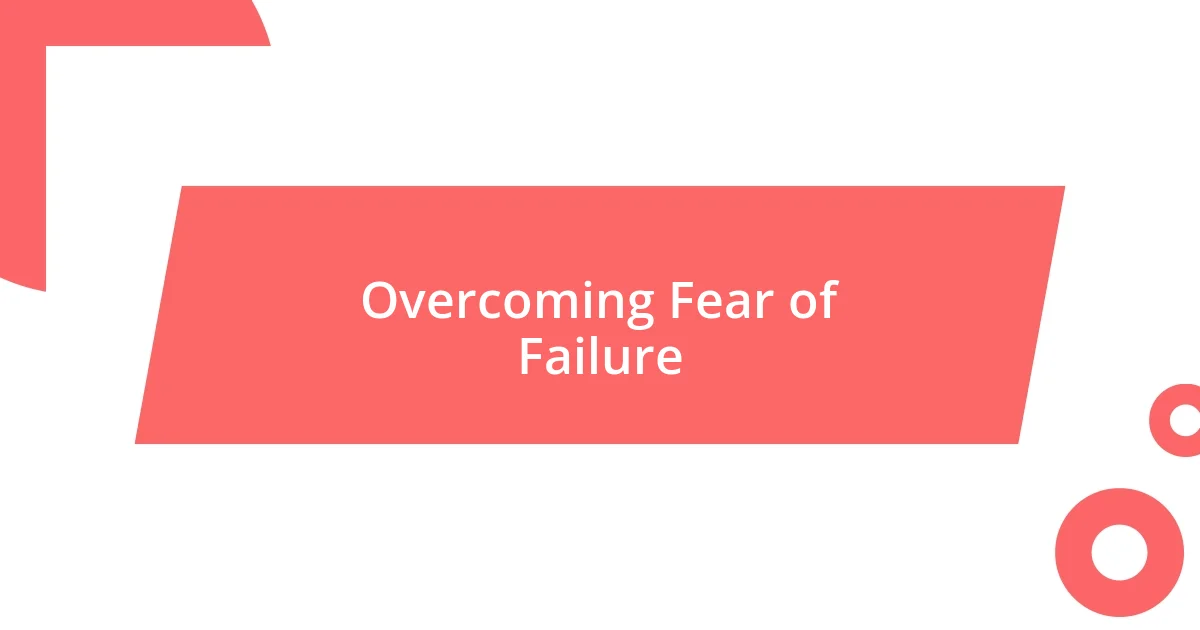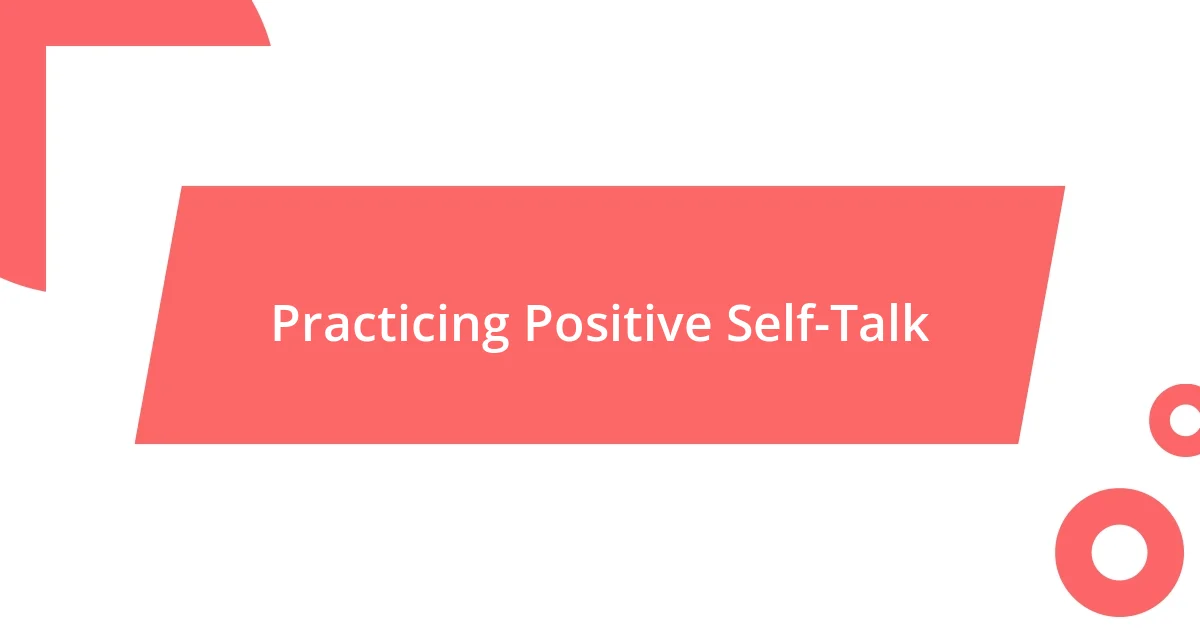Key takeaways:
- Sports confidence is rooted in mental resilience, built through perseverance and the ability to learn from setbacks.
- Implementing techniques like visualization, positive self-talk, and setting realistic goals can significantly enhance sports confidence.
- Celebrating small achievements fosters a positive mindset and reinforces gradual progress, contributing to overall confidence in sports.

Understanding Sports Confidence
It’s interesting to think about what sports confidence truly means. For me, it was never just about being the fastest or the strongest; it was about believing in my abilities, even in the face of uncertainty. I remember standing at the starting line, my heart racing, and questioning if I could measure up. Have you ever felt that way too?
Understanding sports confidence is more than skills or talent—it’s about mental resilience. I recall a loss that shook my confidence to the core; it left me questioning everything I knew about myself as an athlete. But through that experience, I learned that confidence is built through perseverance and reflection. I started to recognize that setbacks could be stepping stones, if I approached them with the right mindset.
In essence, sports confidence is that inner voice that assures us we can give our best—regardless of the outcome. When I faced moments of doubt, I learned to harness the energy around me, focusing on my training and the support of my teammates. This shift in perspective transformed my approach to competition. Have you considered how much of your performance is influenced by your mental state? Both the victories and the defeats contributed to a deeper understanding of myself and my capabilities.

Importance of Building Confidence
Building confidence is crucial for anyone pursuing sports, as it shapes not only performance but also overall enjoyment of the activity. I often recall the days when I struggled with self-doubt, especially during high-stakes matches. It was during those moments that I realized how a strong belief in myself could transform my approach. The difference between competing with confidence versus competing from a place of fear was monumental. It wasn’t about perfection; it was about embracing my abilities and trusting that I had prepared well.
Here are a few reasons why building confidence is important:
- Enhanced Performance: With confidence, I found that my skills shone brighter, allowing me to execute techniques I had practiced countless times.
- Resilience in Adversity: Each setback became a lesson rather than a failure, making me tougher over time.
- Positive Mindset: I discovered that having confidence encourages a more optimistic view, making the experience of sports enjoyable rather than stressful.
- Stronger Team Dynamics: When I felt confident, it positively impacted my teammates, fostering better communication and support during competitions.
In every game, I learned that confidence was not just an individual asset; it was a collective one.

Techniques for Enhancing Confidence
When I think about techniques for enhancing confidence, visualization often comes to mind. I remember sitting in the locker room before a big match, taking a moment to imagine myself executing each play perfectly. It’s not just wishful thinking; visualization helps solidify what I know I can do. Have you ever visualized success in a sports setting? This mental rehearsal creates a bridge between my training and performance, leading to a calmer mindset when it’s time to compete.
Another method I’ve found effective is positive self-talk. I used to struggle with negative thoughts creeping in, especially during tough games. But I learned to replace those thoughts with affirmations that focused on my strengths. For instance, instead of saying, “I can’t mess up,” I’d remind myself, “I’ve trained hard, and I can handle this.” This small change in dialogue not only uplifted my mood but also transformed my approach to the game.
Additionally, setting achievable goals can dramatically boost confidence. I remember setting a manageable target for one season—to improve my endurance. By celebrating even the small wins, I gradually built a more confident version of myself. What goals have you set for improvement? With each milestone, I felt my self-assurance grow, reinforcing that confidence isn’t just born; it’s built step by step through personal achievements.
| Technique | Description |
|---|---|
| Visualization | Imagining successful performance to boost mental preparation. |
| Positive Self-Talk | Replacing negative thoughts with affirmations to enhance mindset. |
| Setting Achievable Goals | Creating and celebrating small milestones to reinforce confidence. |

Overcoming Fear of Failure
It’s fascinating how fear of failure can creep into our minds, especially when the stakes are high. I remember standing at the starting line of a crucial race, my heart racing more from nerves than excitement. In that moment, I had to ask myself: what’s the worst that could happen? Failing isn’t the end; instead, it’s an opportunity for growth. My perspective shifted when I embraced the idea that every stumble was a stepping stone toward improvement.
One match stands out vividly in my memory—one where I missed an easy goal. Instead of wallowing in defeat, I decided to analyze what went wrong. Was it a lapse in concentration? A lack of practice? This analysis helped me glean insights from a painful moment, teaching me that failure unveils valuable lessons. I revisited that match in my mind not as a black mark on my record, but as a crucial chapter in my development. Turning failure into a narrative of learning became instrumental in overcoming my fears.
I often reflect on how my teammates coped with their own fears of failure. We would huddle before games, sharing our personal struggles and anxieties. It was during these conversations that I realized I wasn’t alone; everyone faced similar battles. The more we talked about our fears, the lighter they felt. By normalizing these feelings, we transformed fear into a collective strength, fueling our passion to perform not just for ourselves, but for each other. Has sharing ever helped you confront your own fears? It was a game-changer for me, reinforcing that vulnerability can lead to empowerment.

Setting Realistic Goals
I’ve found that setting realistic goals can significantly shape my confidence in sports. Early on, I made the mistake of aiming too high too soon, which only led to frustration. For instance, I once set a target to improve my sprinting speed by two seconds overnight. When that didn’t happen, I felt defeated. Instead, I learned the importance of incremental progress, like aiming for a fraction of a second at a time. Isn’t it empowering to see yourself making steady improvements?
Breaking down larger goals into smaller, achievable steps was another essential lesson for me. I remember during a grueling basketball season, my aim was to increase my free-throw percentage. Instead of fixating on the overall percentage, I focused on making just one more shot each practice. This shift helped me stay motivated and feel accomplished, even in tough weeks. Have you tried breaking down a daunting goal into bite-sized pieces? Doing this not only made the journey feel less overwhelming but also boosted my belief in my abilities.
I often reflect on how celebrating these smaller milestones played a crucial role in building my confidence. After hitting a personal record in practice, I’d take a moment to acknowledge my effort, perhaps treating myself to a favorite snack or sharing the moment with teammates. This act of recognition reinforced my growth and prompted me to keep aiming higher. It’s fascinating how those little victories add up, isn’t it? They remind me that confidence isn’t a sudden surge but a steady climb, fueled by consistent effort and celebration.

Practicing Positive Self-Talk
Practicing positive self-talk has been a game-changer for me in building sports confidence. I remember a time when I was just about to step onto the field, and instead of letting self-doubt creep in, I made a conscious effort to tell myself, “I am prepared and capable.” It was almost surreal how that simple affirmation transformed my nervous energy into focus and determination. Have you ever tried talking to yourself in a supportive way before a big moment?
Another vivid memory comes to mind when I faced a tough opponent in a tennis match. I caught myself thinking, “What if I mess up?” But then, I flipped the script in my mind; I reminded myself of all the hours I practiced and the skills I’d honed. I told myself, “I have the tools to win this.” Shifting my self-talk like this not only calmed my nerves but also gave me a newfound sense of control. It’s incredible how our inner dialogue can influence our performance, don’t you think?
On days when I struggled, the power of positive self-talk became my lifeline. I had moments where I’d leave a practice feeling defeated, yet instead of reinforcing negativity, I would think, “Every practice makes me stronger.” I tried picturing my progress, even when it felt minuscule. This shift in perspective allowed me to celebrate small wins, ultimately bolstering my confidence and resilience. Have you experienced a shift in mindset that made all the difference for you? Embracing positive self-talk has certainly shaped my journey, emphasizing that our thoughts can either uplift us or hold us back.

Celebrating Small Achievements
Celebrating small achievements is something I’ve come to cherish in my sports journey. I vividly remember the day I nailed a new technique in my swimming strokes after countless attempts. It wasn’t a championship moment, but the grin on my face said it all. I paused, took a deep breath, and high-fived my coach. Isn’t it amazing how recognizing these little victories can transform the way we view our progress?
There were times when I would achieve lesser-known milestones, like simply showing up for a challenging workout when every part of me wanted to stay home. One day, I decided to reward myself with a spontaneous outing afterward. Sharing that experience with friends not only validated my effort, but it also highlighted the importance of community in our journeys. Have you ever celebrated a quiet victory that felt just as grand as a trophy?
I’ve learned that these small celebrations turn the grind into something enjoyable. After completing each week’s goals in my training regimen, I used to treat myself to a small indulgence, like a favorite dessert. That little reward made each step feel meaningful, reminding me that every bit of progress matters. It’s fascinating how these moments of recognition can build a strong, resilient mindset, isn’t it? They truly equip us to tackle the next challenge with renewed energy.















